Pop songs: we all know them; we love them; we hate them. Pop music gives us catchy earworms, turns us into karaoke stars and deeply pulls at our heartstrings and sense of nostalgia.
University of Lethbridge Assistant Professor in Musicology/Ethnomusicology, Dr. Emily Gale, is an expert in sentimental songs and the feelings they evoke in listeners. Analyzing the politics of affect and sentimentality within US popular musics from the late eighteenth century to the present, Gale explores the unexpected political histories and unlikely entanglements in the songs that tend to hit us in the "feels".
"For a lot of listeners and even for some music writers and researchers, pop music is a relatively recent phenomenon that refers specifically to the advent of recorded sound," says Gale.
"But pop music has a much longer history with lasting relevance for current practices. As an interdisciplinary researcher, my approach to pop music is informed by cultural studies, media studies and gender studies and my practice includes digging in archives and learning to sing and play the songs I write about."
Dr. Emily Gale discusses pop music in her PUBlic Professor Series talk from February 2025.
Canadian Contexts in Pop Music
Sentimental songs reach across genre, geography and time, but Canada is home to one of the preeminent sentimental song performers of our time: Céline Dion.
Gale says the Québécoise diva has garnered many accolades, but she has also been subject to intense criticism — an example of one of the many paradoxes of sentimental songs.
"In the Albertan context, we might think of country crooner k.d. lang who has recorded a broad range of ballads and standards throughout her career. 'Crying' — lang’s 1987 duet with Roy Orbison—could indeed be considered a hallmark of sentimental song repertory," Gale adds.
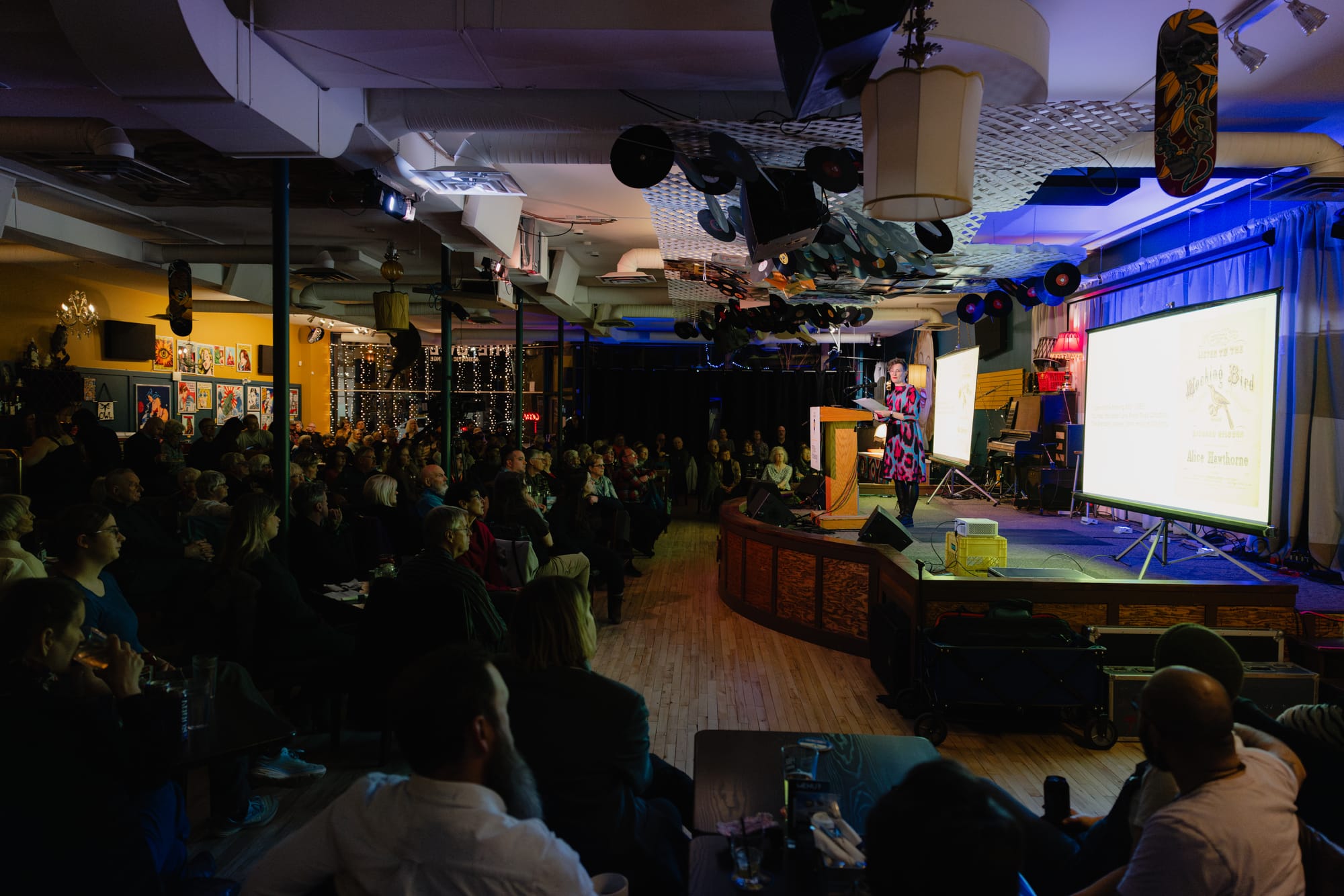
Trailblazing Research on Tearjerkers
Toronto-based music critic Carl Wilson inspired Gale's research. In 2007, Wilson published a book about Céline Dion that starts to take a historical look at sentimental songs, but at the time wrote that it was a "field awaiting its scholar".
"I knew when I read that sentence I wanted to be that scholar. It wasn’t such a big leap for me," says Gale, who noted that her family was deeply musical. "I once said that I could spend the rest of my career studying nothing but sentimental songs and I would still not run out of material."
Gale adds that this is proving to be true, and it still excites her.
"What I love most about my research is that this repertory continues to surprise me — I am able to find new avenues of learning and exploration through it. And some of the songs I end up studying are just truly weird and delightful."
Gale's background as a first-generation student and her experiences as a queer woman academic inspires her to integrate radical inclusivity in her research and teaching.
"Pop music studies has long been the domain of people working outside of academia. It belongs to critics, artists, producers and other makers, fans and listeners — as well as academics," says Gale.
"Creating community across such divergent poles of access requires recognizing knowledge in multiple forms, producing it in a range of media and passing the mic."
Adding that she is inspired by bell hooks' notion that education is the practice of freedom, Gale says she hopes her research encourages people to listen more attentively.
"This is, of course, applicable to the study of music, but I tend to think of it in a broader sense; listening requires practice, patience, and experimentation. Are we really hearing one another?"
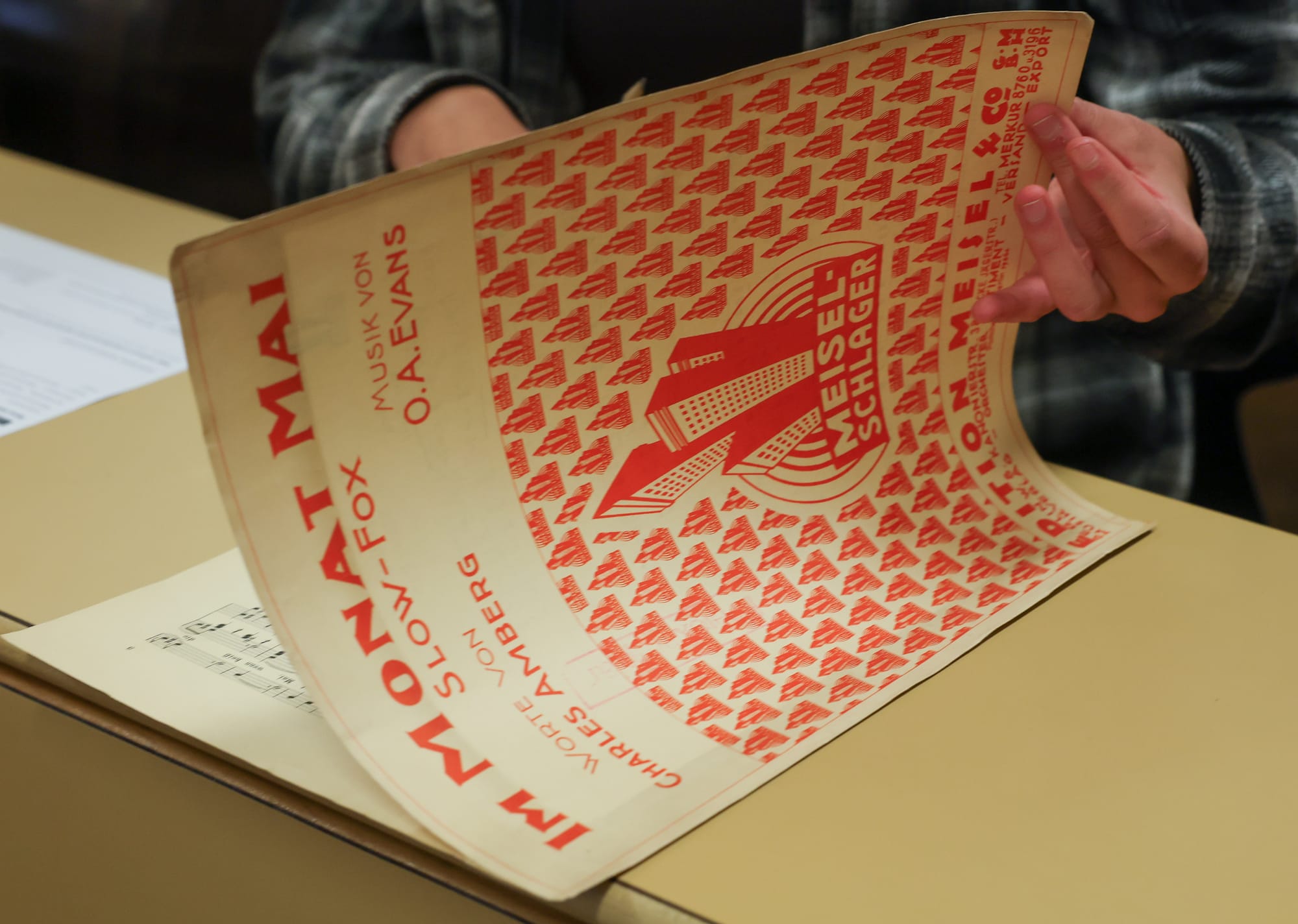
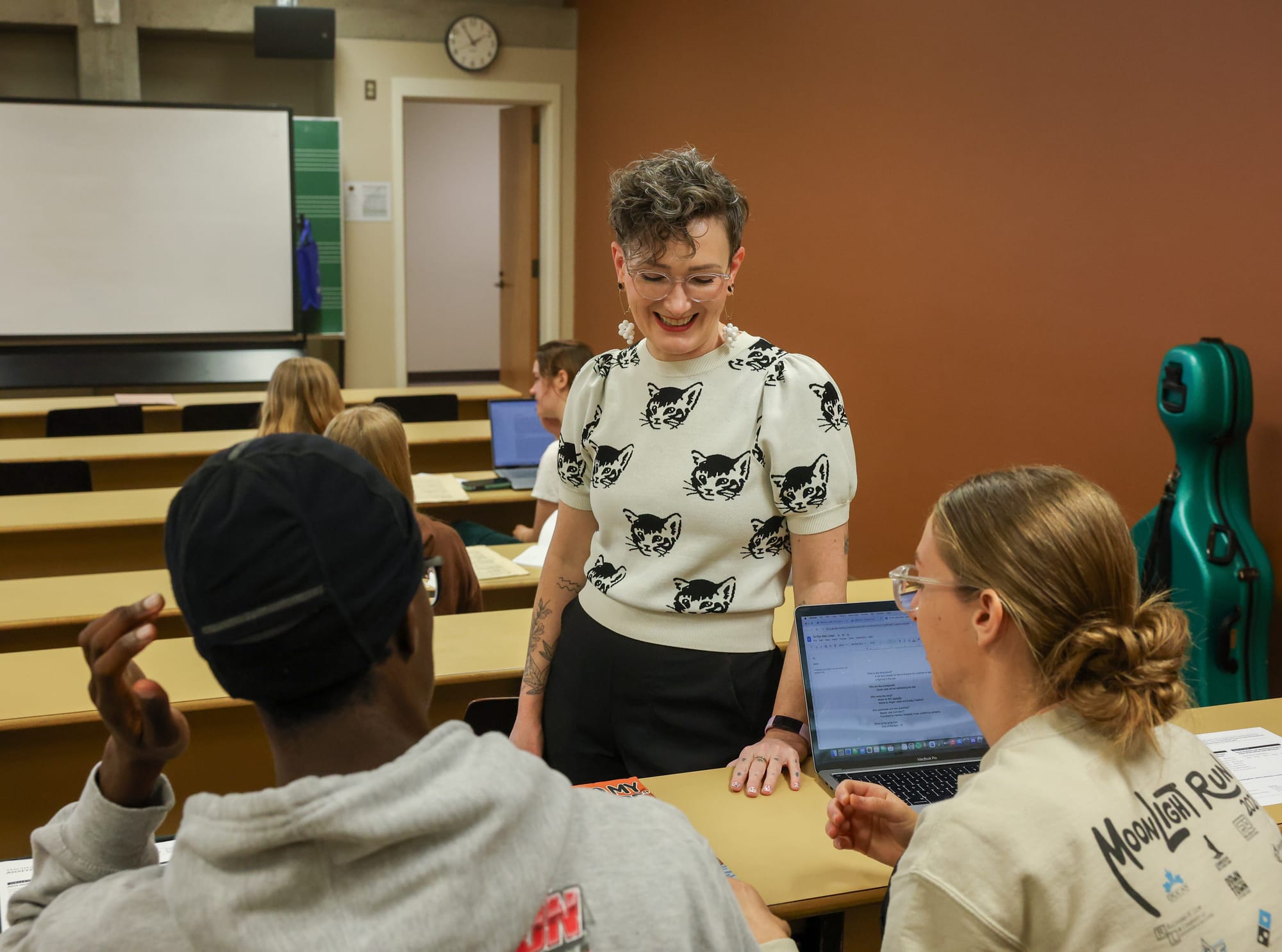
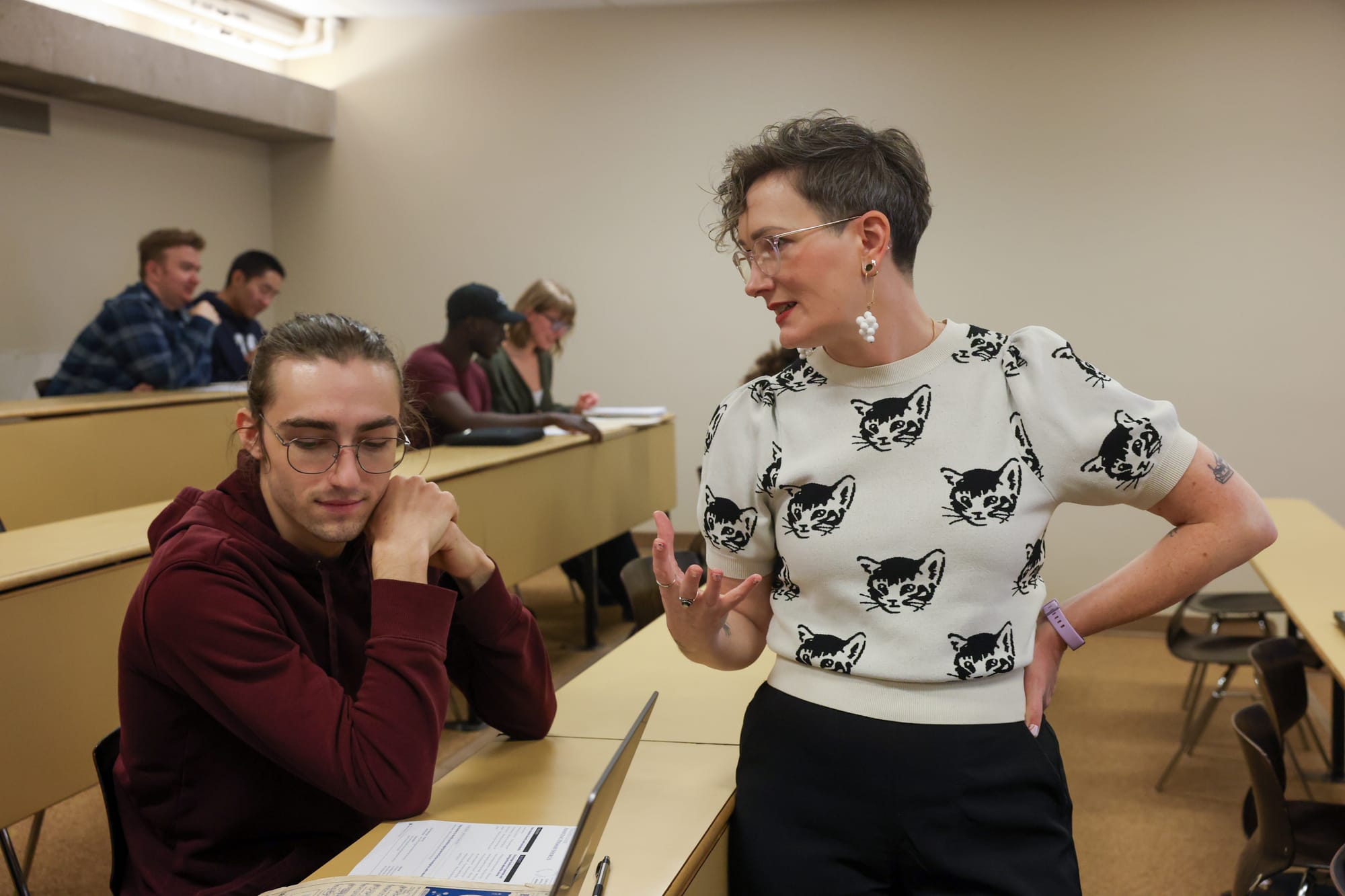
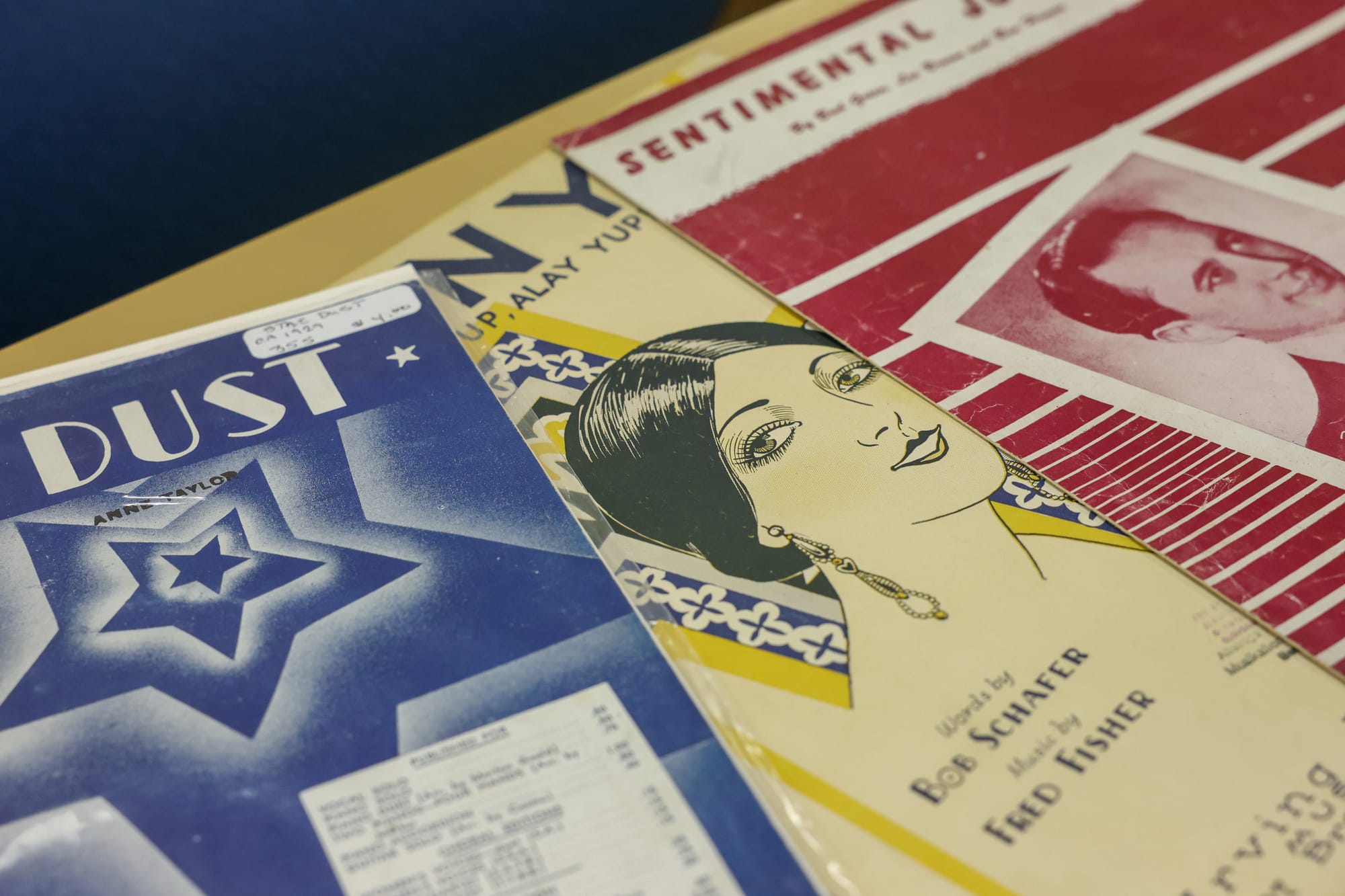
Dr. Emily Gale's music history class.
Openly Teaching Popular Music
Like her own research, Gale has her students work with historical concepts and sources, considering them in the context of larger cultural issues.
"Because my own research has benefited indelibly from the shift to digitized archives, my classes rely a lot on relevant primary source materials that are now widely available on the internet."
For example, the students in Gale's nineteenth-century music history class are working with the Lester S. Levy Sheet Music Collection available online through the Johns Hopkins Library.
"This is a collection that I’ve used extensively in my own research and we will employ these materials to create public-facing essays that demonstrate the fruits of the students’ research around individual items in the collection. Research outputs shouldn’t always remain hidden behind pay walls," Gale concludes.